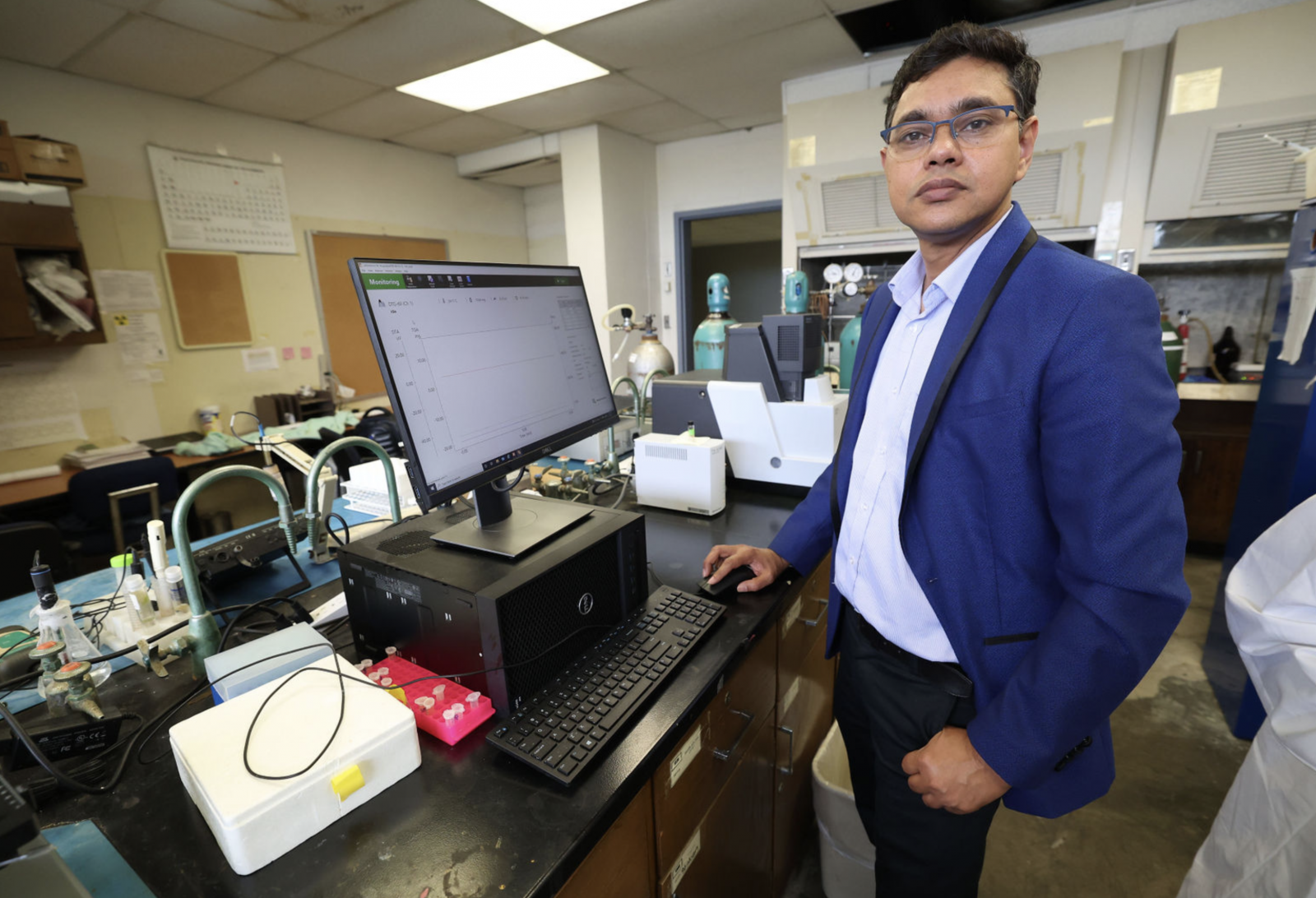By: LA Warren
(JACKSON, Miss.) – Jackson State University (JSU) assistant professor Saiful M. Islam, Ph.D. in the Department of Chemistry, Physics and Atmospheric Sciences has been awarded the National Science Foundation (NSF) Faculty Early CAREER Development Award. This prestigious honor recognizes Islam’s research in developing advanced nanomaterials that enhance sustainable energy solutions and environmental protection.
Islam’s project, housed within the College of Science, Engineering and Technology (CSET), focuses on developing chalcogenide-based porous nanomaterials, specifically aerogels, to better understand their atomic structures and properties. His first research thrust focuses on designing materials that improve electrochemical energy storage in lithium-ion batteries, while his second thrust involves designing materials that can bind and remove various toxic metals from contaminated water. This research aims to develop nanomaterials capable of effectively capturing hazardous metal pollutants, making water safe for consumption and reducing environmental harm.
“This award is a transformative milestone for me,” Islam said. “It validates my commitment to advancing science and provides the resources to make a lasting impact through innovative research and education.”
The NSF CAREER Award is renowned for integrating research and education and Islam’s project exemplifies this mission. He said, “We have pioneered new directions in the field and this award will allow us to explore these innovative avenues more extensively. Our goal is to design and develop new materials and uncover critical insights into their compositions, local structures and properties and also investigate their potential applications in technologies such as lithium-ion batteries and the environmental remediation of chemically toxic metals.”
The award will also enable Islam to mentor three graduate students, providing them with hands-on experience in revolutionary materials science. More broadly, he aims to help underrepresented minority students at JSU gain exposure to advanced fields such as materials chemistry, engineering and technology.
Additionally, his work will create opportunities for local and area high school students and teachers to engage in materials science and engineering research through summer programs and outreach initiatives. These efforts will allow participants to work in Islam’s lab for hands-on training. To further amplify the initiative’s impact, he plans to widely distribute a video showcasing materials science research at JSU and the university’s role in advancing Mississippi’s education and workforce development.
Among the challenges Islam’s research seeks to address is bridging critical gaps in the field by developing amorphous nanomaterials with unconventional structures and uncovering the atomic-level factors that drive their functionality.
Looking ahead, he plans to develop a new course, “Solid-State and Materials Chemistry,” to inspire students in this growing field. Additionally, he envisions significant advancements in chalcogenide-based aerogels over the next five to 10 years. Islam said he’s optimistic that his research will contribute to unlocking the hidden chemistry and unique properties of these materials, positioning JSU at the forefront of this evolving scientific landscape.







